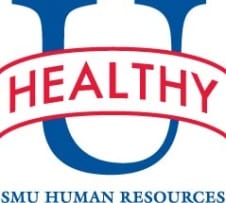 A heart attack is a medical emergency. If you have symptoms of a heart attack, call 911 right away.
A heart attack is a medical emergency. If you have symptoms of a heart attack, call 911 right away.
DO NOT DELAY SEEKINGÂ MEDICAL ATTENTION. You are at greatest risk of sudden death in the early hours of a heart attack. Immediate care can help reduce the risk of death and further damage to your heart.
DO NOT TRY TO DRIVE YOURSELF TO THE HOSPITAL. Heart attack symptoms may seem manageable at first, but driving adds the risk of an accident in which you can further injure yourself or others.
Symptoms:
Chest pain is a common symptom of a heart attack. However, you may feel pain in only one part of your body, or it may move from your chest to your arms, shoulder, neck, teeth, jaw, belly area, or back.
The pain can range from severe to mild. It can feel like:
- A tight band around the chest
- Bad indigestion
- Something heavy sitting on your chest
- Squeezing or heavy pressure
The pain usually lasts longer than 20 minutes. Rest and a medicine called nitroglycerin may not completely relieve the pain of a heart attack. Symptoms may also go away and come back.
 Some people (people who are elderly, people with diabetes, and women) may experience very little or no chest pain. Or, they may have unusual symptoms (shortness of breath, fatigue, weakness). A “silent heart attack” is a heart attack with no symptoms.
Some people (people who are elderly, people with diabetes, and women) may experience very little or no chest pain. Or, they may have unusual symptoms (shortness of breath, fatigue, weakness). A “silent heart attack” is a heart attack with no symptoms.
Other symptoms of a heart attack may include:
- Anxiety
- Cough
- Fainting
- Light-headedness, dizziness
- Nausea or vomiting
- Palpitations (feeling like your heart is beating too fast or irregularly)
- Shortness of breath
- Sweating, which may be very heavy
LIVE A HEALTHY LIFESTYLE
T o help prevent a heart attack:
o help prevent a heart attack:
- Don’t smoke.
- Keep your blood pressure, blood sugar, and cholesterol under control.
- Eat a heart-healthy diet rich in fruits, vegetables, and whole grains, and low in animal fat.
- Get plenty of exercise, at least 30 minutes a day, at least 5Â days a week (talk to your doctor first).
- Get checked and treated for depression.
- Limit yourself to no more than one drink a day for
women, and no more than two drinks a day for men. - Stay at a healthy weight. Aim for a body mass index (BMI) of between 18.5 and 24.9.
S MU RESOURCES YOU THAT SUPPORTÂ YOUR HEALTHY LIFESTYLE
MU RESOURCES YOU THAT SUPPORTÂ YOUR HEALTHY LIFESTYLE
SMU offers a wide variety of resources to support your total wellness. Below are just a few examples of programs and services available. We always encourage you to consult with your medical care provider before beginning any exercise or nutritional program.
- Psychology Department Smoking Cessation Program – SMU research study and treatment program offering free smoking support in Dallas.
- Wellpower – wellness program for benefit-eligible staff and faculty. Earn rewards while you get healthy!
- Dedman Center for Lifetime Sports – offers state-of-the art facilities, group exercise classes, personal training, massage therapy and more!
- Magellan – SMU’s Employee Assistance Program – offers confidential counseling and referral services in addition to online programs that support your overall health and wellbeing.
- On-campus Screenings/Health Questionnaire – look for emails, blog posts, and information on the HR website regarding the next round of screenings in the fall. Complete the process, and you may earn a 20% discount on your SMU Blue Cross Blue Shield of Texas medical deductible in 2013.
- Naturally Slim program – 10-week on-campus or online class aimed at helping you reduce your risk for metabolic syndrome, diabetes, and heart disease! This class is typically offered in the spring semesters. The application period for Spring 2012 is already past, but take a look at the program to see if you might be interested next year!
Don’t forget! February 24 is Go Red For Heart Health Day at SMU! Wear RED and if you can, join us on a Wellpower Walk around campus at noon.
Questions about these or other resources? Email wellpower@smu.edu.
Several sources of information were consulted in creating this blog. Sources included Baylor Heart Health Hospital, WebMD, and Blue Cross Blue Shield of Texas.

